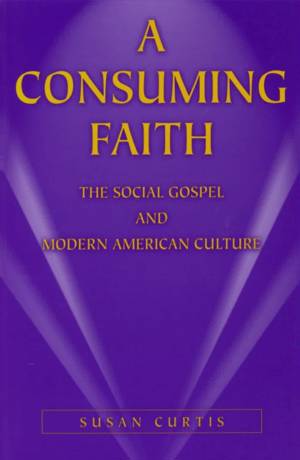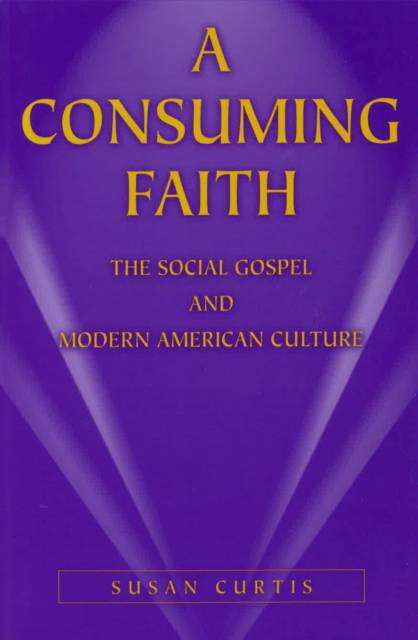
- Afhalen na 1 uur in een winkel met voorraad
- Gratis thuislevering in België vanaf € 30
- Ruim aanbod met 7 miljoen producten
- Afhalen na 1 uur in een winkel met voorraad
- Gratis thuislevering in België vanaf € 30
- Ruim aanbod met 7 miljoen producten
Omschrijving
In A Consuming Faith, Susan Curtis analyzes the startling convergence of two events previously treated independently: the emergence of a modern consumer-oriented culture and the rise of the social gospel movement. By examining the lives and works of individuals who identified themselves as social gospelers, rather than just groups or individuals who fit a particular definition, Curtis is able to capture the very fluidity of the term social gospel as it was used.
In addition to exploring the time in which the movement took shape, Curtis provides biographical sketches of traditional figures involved in various aspects of the social gospel movement such as Walter Rauschenbusch, Washington Gladden, and Josiah Strong alongside those of less-prominent figures like Charles Jefferson, Elizabeth Stuart Phelps, and Charles Macfarland. Going beyond their roles in the movement, Curtis shows them to be sons and daughters, husbands and wives, and workers and citizens who experienced the vast changes in their world wrought by industrialization and class conflict even as they sought to define a meaningful religious life. The result of their quest was a redefinition of Protestantism that contributed to an evolving public discourse and culture.
This groundbreaking study, now with a new preface by Curtis, provides an illuminating look at culture and religion as interdependent influences, and treats religious life as an integral part of American culture--not a sacred world apart from the secular. A Consuming Faith will be of interest to anyone who strives to understand not only the social and cultural history of America in the late nineteenth and early twentieth centuries, but also the origins of modern America.
Specificaties
Betrokkenen
- Auteur(s):
- Uitgeverij:
Inhoud
- Aantal bladzijden:
- 352
- Taal:
- Engels
Eigenschappen
- Productcode (EAN):
- 9780826213624
- Verschijningsdatum:
- 8/10/2001
- Uitvoering:
- Paperback
- Formaat:
- Trade paperback (VS)
- Afmetingen:
- 169 mm x 230 mm
- Gewicht:
- 530 g

Alleen bij Standaard Boekhandel
Beoordelingen
We publiceren alleen reviews die voldoen aan de voorwaarden voor reviews. Bekijk onze voorwaarden voor reviews.











